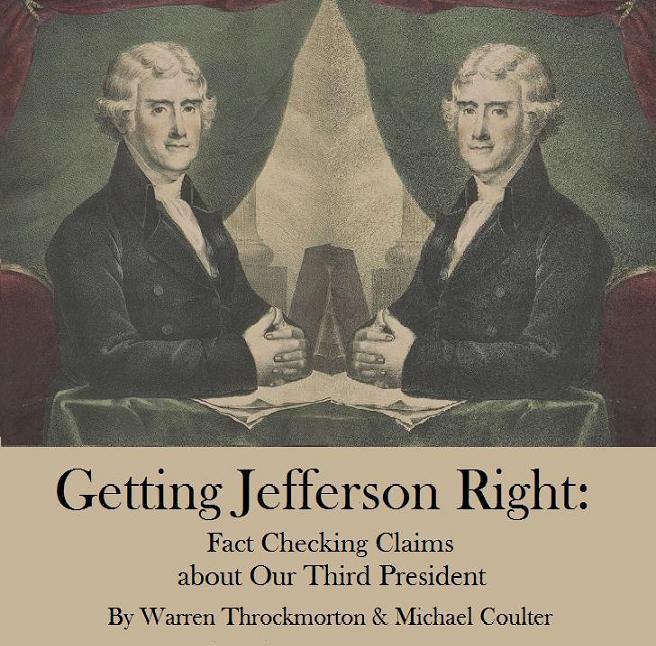For fun, and to promote Getting Jefferson Right: Fact Checking Claims about Our Third President, I am going to post a quote or event from Thomas Jefferson’s life each day until July 4, the day Jefferson died in 1826.
To kick this off today, June 15, I have taken a brief section of a letter from Jefferson to John Adams written on June 15, 1813:
One of the questions you know on which our parties took different sides, was on the improvability of the human mind, in science, in ethics, in government etc. Those who advocated reformation of institutions, pari passu, with the progress of science, maintained that no definite limits could be assigned to that progress. The enemies of reform, on the other hand, denied improvement, and advocated steady adherence to the principles, practices and institutions of our fathers, which they represented as the consummation of wisdom, and akme of excellence, beyond which the human mind could never advance.
Jefferson and Adams were political opponents on several matters after Adams became president. Here Jefferson described to Adams one of the matters of difference. In general, Jefferson’s party saw human nature as malleable for the better and sought to enhance education as a means of human improvement. Adams aligned with interests which were viewed by Jefferson as more traditional.
The series of letters between Jefferson and Adams give an insight into the political differences but also shows how time and mutual respect helped to blur those differences.
